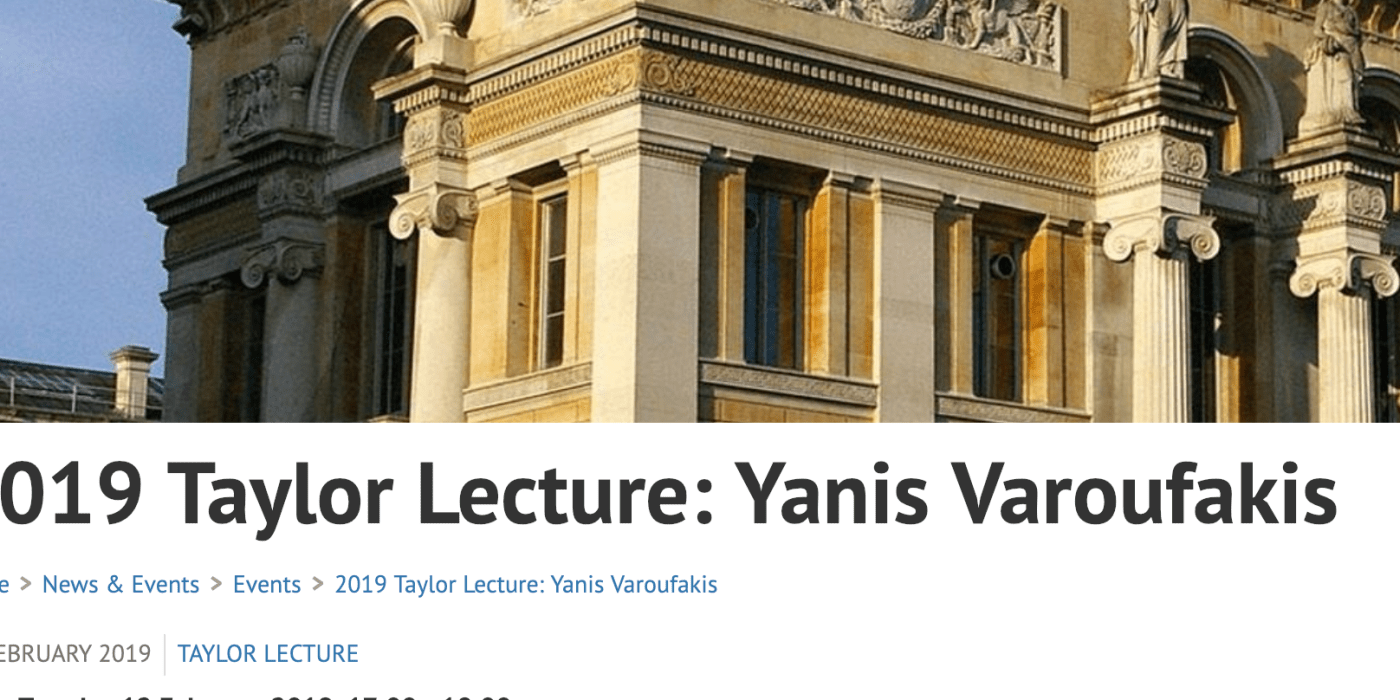The Faculty of Medieval and Modern Languages, Oxford University, kindly invited me to deliver the 2019 Taylor Lecture on 12th February 2019. In my book was addressed to my daughter regarding the economy I tried to offer her a simple, though not simplistic, account on how capitalism works and how it fails. Critics, correctly, pointed out that the book’s criticisms of capitalism (couched in parables borrowed from literature, theatre and science fiction) never really answered the pressing question: “But what’s the alternative? Could social and economic relations be substantially different given human nature and really existing technologies?” In this lecture I shall speak both to the difficulties in answering this
Topics:
Yanis Varoufakis considers the following as important: culture, English, Political, Politics and Economics, Talking to my daughter about the economy (book), Talking to my daughter about the economy: A brief history of capitalism, Talks, University
This could be interesting, too:
Chris Blattman writes Top 10 family board games we discovered during the pandemic
Chris Blattman writes Top 10 family board games we discovered during the pandemic
Jeff Mosenkis (IPA) writes IPA’s weekly links
Yanis Varoufakis writes Jamie Galbraith on DiEM-TV’s ‘Another Now’ discussing the “criminal incapacity of the elites”

The Faculty of Medieval and Modern Languages, Oxford University, kindly invited me to deliver the 2019 Taylor Lecture on 12th February 2019. In my book was addressed to my daughter regarding the economy I tried to offer her a simple, though not simplistic, account on how capitalism works and how it fails. Critics, correctly, pointed out that the book’s criticisms of capitalism (couched in parables borrowed from literature, theatre and science fiction) never really answered the pressing question: “But what’s the alternative? Could social and economic relations be substantially different given human nature and really existing technologies?” In this lecture I shall speak both to the difficulties in answering this question and to the importance of trying to answer it.
Any answer, I will argue, involves writing a modern Utopia. But the trick is to write it (a) without resorting to magical thinking, un-invented technologies or a view of humanity through rose-tinted glasses, while (b) never forgetting that our current (unbearable to most people) reality is defended by means of economic theories that are no more than exercises in vulgar science fiction. Utopian fiction, in other words, is unavoidable. The point is how effectively to expose the science fictions supporting an insupportable capitalism and juxtapose them against humanist science fictions of an alternative, realistic present.
